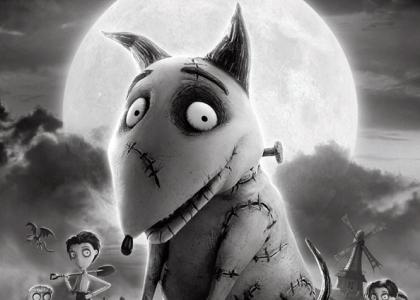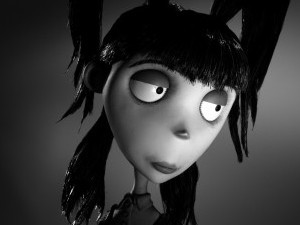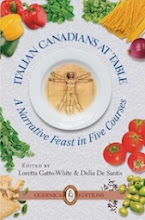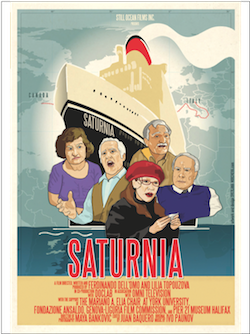 |
| Rimbaud's fork & spoon as photographed by Patti Smith |
Thursday, February 28, 2013
February Cultural Roundup
Exaltation in Cadmium Red by Sonia Di Placido
Glittering Images: A Journey Through Art from Egypt to Star
Wars by Camille Paglia
3 Cities Poems by Whitney French
The Chaperone by Laura Moriarty (review here)
Readings
The (Not So) Nice Italian Girls celebrate love and desire
... or the lack thereof, February 7, 2013 at Q Space
Films
Casablanca (U.S., 1942) directed by Michael Curtiz
The Trip -TV Series (U.K., 2010) directed by Michael
Winterbottom
Zero Dark Thirty (U.S., 2012) directed by Kathryn Bigelow (review here)
Flight (U.S., 1942) directed by Robert Zemeckis (review here)
Skyfall (U.K./U.S, 2012) directed by Sam Mendes (review here)
Beasts of the Southern Wild (U.S., 2012) directed by Benh
Zeitlin (review here)
Lincoln (U.S., 2012) directed by Steven Spielberg
The Perks of Being a Wallflower (U.S., 2012) directed by
Stephen Chbosky
Exhibits
Patti Smith: Camera Solo at the Art Gallery of Ontario
Thursday, February 21, 2013
Oscars 2013: Beasts of the Southern Wild
Beasts of the Southern Wild (U.S., 2012) directed by Benh Zeitlin
Nominated for Four Oscars
Best Actress In a Leading Role
Best Picture
Best Directing
Best Writing (Adapted Screenplay)
Best Picture
Best Directing
Best Writing (Adapted Screenplay)
I am sensitive to the observation that this film has been accused of being "poverty porn". I see where that arises from. I wonder if that observation would be made if the director were black. If he were, I think the perception of the film would be something along the lines of the film being magical, beautifully photographed, and, for the most part, sensitively done ... I think we would be overwhelmed with the beauty of what we saw and would stop thinking of the impoverished Louisianans being represented in this film as being exploited.
Hushpuppy (Quvenzhané Wallis) is a precocious, very beautiful six year old living in squalid conditions in "The Bathtub", a fictionalized version of the Isle de Jean Charles near New Orleans. It is the geographic inspiration for the setting of the island depicted in the film.
Wallis' actions and demeanor are so natural, and affecting, that one easily forgets this is her first acting role.
Hushpuppy's mother has long deserted the family; her father Wink (Dwight Henry) is an alcoholic, possibly epileptic, with heart troubles and woefully unable to care for Hushpuppy at times. The descriptions of the mother are sensuous and beautiful, she very much inhabits Hushpuppy's imagination. As Wink recounts it, she lit ovens and set pots to boil as she walked by ... she was that sensuous, that vibrant. Cleverly, we never see her physical presence fully, only tantalizing portions of it, which only add to the allure.
Wink is a hot-headed charmer with a vivid imagination who inspires Hushpuppy even if his actions seem chaotic and alien to us. He shoots a rifle into the storm to show his daughter that they won't be intimidated by the storm, feeds his daughter as if she was a pet and challenges her to an arm wrestle (and lets her win) to build up her confidence shouting, "Who da man?" and "Show me your guns!"to which Hushpuppy happily obliges.
Zeitlin says that he was inspired by the Katrina survivors who refused to leave New Orleans in the wake of the 2005 hurricane. The portrait of those survivors is not always pleasant or positive - there is drunkenness and foolishness and a relaxed attitude towards the raising of children that may infuriate some.
However, when we see Hushpuppy and her father being forcefully removed and brought to an evacuation center the viewer can't help making a negative contrast between Hushpuppy's lush world of natural beauty and wildlife amid squalor and the sterile, ugly evacuation centre where the Louisiana natives appear beaten down, physically diminished, caged almost.
When Wink stages a coup and releases himself, Hushpuppy and many of the other Bathtub residents from the evacuation centre, despite the dangerousness and precariousness of it all, there is a sense of liberation, of joy. And of the rightness of his actions.
In her imagination, Hushpuppy sees herself a part of a long line of survivors, ancient beasts who roamed the earth - pictured here in her imagination as gigantic wild boars - who will persevere. "I see that I'm a little beast in a big, big universe ..." she states at the end. And who could doubt her?
Wednesday, February 20, 2013
Oscars 2013: Zero Dark Thirty
Zero Dark Thirty (U.S., 2012) directed by Kathryn Bigelow, 157 minutes
Nominated for Five Oscars
Best Actress In a Leading Role
Best Picture
Best Film Editing
Best Sound Editing
Best Writing (Original Screenplay)
This film is a double edged sword … either advocating torture as a means to extract information from enemies (leading to the discovery and killing of Osama bin Laden, leader of al-Qaeda) or demonstrating how barbaric it is and counter to the democratic values that Americans purport to hold.
Is it ever right to torture if it elicits information that will lead to the mastermind of the death of many innocent people – such as Osama bin Laden, following the devastating 9-11 attacks. The answer appears to be sometimes … maybe ... possibly.
Is it ever right to torture if it elicits information that will lead to the mastermind of the death of many innocent people – such as Osama bin Laden, following the devastating 9-11 attacks. The answer appears to be sometimes … maybe ... possibly.
The Maya character in the film (Jessica Chastain) is said to be a composite of two female CIA officers
Alfreda Frances Bikowsky and Michael Anne Casey. There is an strange deficit of info on Bikowsky in the mainstream press but if you google her name it pops up in many blogs, non-profit news websites and conspiracy websites (such as Boiling Frogs Post) which makes the reader nervous about the truth surrounding this mythical "Maya".
In the film, Maya has been
reassigned to the U.S. embassy in Pakistan to work at a "black site" in 2003 and assist
her superior Dan (Jason Clarke) in the interrogation of one Ammar, suspected of links to Saudi terrorists.
Eventually a name is revealed, an “Abu Ahmed”, who is rumoured to work as a
personal courier for bin Laden.
The torture scenes are really gut wrenching and thoroughly
realistic – water torture, near drowning, verbal and emotional humiliation, starvation, beatings –
and to director Bigelow’s credit we see the experience through Maya’s eyes. She
is both repulsed but determined to find out the information she needs. But it
is ugly, truly and sickening ugly, to observe.
Bigelow never shies away from disturbing scenes – her work
seems to get grittier and more complex as her career evolves. She seems to have
an unerring and sympathetic eye for the men and women involved in these sometimes
morally dubious paths in the military.
In the script, co-written by Bigelow, Maya is portrayed as
dedicated and fanatical in her pursuit and also a little obnoxious and
possibly slightly unhinged. Likely these traits are softened somewhat by Chastain’s beauty in the viewing.
I wonder how the film would be received if the Maya character was less
photogenic?
Using masses of data, technology, and
information gleaned from detainees, Maya focuses on finding Abu Ahmed even
though intell surfaces that Ahmed is dead, possibly as early as 2001. It’s
a long and difficult road for our protagonist with Maya surviving the Islamabad Marriott Hotel bombing in 2008 and being shot at in her car by armed men. Maya's fellow CIA
officer and friend Jessica (Jennifer Ehle) is not as lucky – she is killed in
the Camp Chapman attack in 2009.
A fellow analyst researching intelligence archives suggests to
Maya that Abu Ahmed is actually Ibrahim Sayeed and reports of his death are
actually related to the death of one of his many brothers. Under Maya’s direction
and urging, CIA operatives are deployed to identify this man whom they track, by cellphone,
to a compound in Abbottabad, Pakistan, near the national military academy.
The compound is under surveillance for several months but the
CIA cannot prove definitively that bin Laden lives there. Top CIA officials,
when pressed, will only admit to the White House that there is a 60-80% probability that bin Laden
is present, Maya’s cocky response when asked: “100%”.
A plan is devised to use two stealth helicopters to secretly enter Pakistan with a U.S. Navy SEAL team to raid the compound. "Zero Dark Thirty" is military slang for an unspecified time in the early hours of the morning before dawn - when this raid occurred.
No matter what Maya's competency is, she is still described as "the girl", within earshot, and without the slightest hint of inappropriateness on the part of the senior officials she deals with. It's not difficult to understand her combativeness and often prickly behavior to her fellow agents and superiors.
A plan is devised to use two stealth helicopters to secretly enter Pakistan with a U.S. Navy SEAL team to raid the compound. "Zero Dark Thirty" is military slang for an unspecified time in the early hours of the morning before dawn - when this raid occurred.
No matter what Maya's competency is, she is still described as "the girl", within earshot, and without the slightest hint of inappropriateness on the part of the senior officials she deals with. It's not difficult to understand her combativeness and often prickly behavior to her fellow agents and superiors.
The money shot, of course, is the killing of bin
Laden on May 2, 2011 by presidential executive order. The
sequence appears to be shot in near real time and does not shy away from the brutality
of shooting a woman who happens to get in the way of the raid and terrifying a dozen children in the middle of the night. It may seem odd to say this but the actual shooting of bin Laden is sensitively done - less graphic than one would imagine, more mindful of the outrage such a scene could summon some viewers.
The politics aside, and I have a real issue with the killing
of America’s sworn enemies without trial or the rule of law, this episode will
provide only a short term relief to Americans and their billion dollar campaign to route out terrorism. However, this film has made the tortuous path to this momentous historical event an emotionally involving and rewarding cinematic experience.
Tuesday, February 19, 2013
Oscars 2013: Frankenweenie

Frankenweenie (U.S., 2012) directed by Tim Burton,
Nominated for One Oscar
Best Animated Feature Film
In a classic late-18th-century experiment, the Italian physiologist Luigi Galvani hung dead frogs from his balcony during a thunderstorm. The animals were impaled on metal hooks intended to attract an electric charge as the storm flashed its way across town. In response to a lightning strike or a boom of thunder, 'their legs twitched in a way that made them seem as if they were ready to hop off the balcony and into the streets below.'
What a strange and brilliant creature Tim Burton is. The coupling of the dark but campy imagery in his animation and an inherent understanding of one's childhood fears and anxieties often disarm the film goer.
The story of Victor's efforts to resuscitate his beloved dog Sparky after a car accident by giving him jolts of electricity is both poignant and bizarre - two qualities that might describe Burton's artistic efforts in general. Victor, a scientific grade school prodigy, literally raises Sparky from the dead through an ingenious experiment. I came upon this historical fact by chance in a recent review of a book about Mary Shelley, the creator of the novel Frankenstein:
In a classic late-18th-century experiment, the Italian physiologist Luigi Galvani hung dead frogs from his balcony during a thunderstorm. The animals were impaled on metal hooks intended to attract an electric charge as the storm flashed its way across town. In response to a lightning strike or a boom of thunder, 'their legs twitched in a way that made them seem as if they were ready to hop off the balcony and into the streets below.'
There are the requisite villains - a sour-faced neighbor who is also the mayor (voiced by Martin Short who also voices the role of the father), treacherously jealous schoolmates who envy Victor's brilliance and try and steal his experiment for a school science fair; sheep-like townspeople who will quickly pick up a torch and a pitchfork to chase away an "alien" presence in their midst. Of course, this is a great spoof of the Frankenstein mythology and it almost succeeds.
But I find the animation, in general, curiously lacks emotion with the characters having limited expressions and movements (perhaps this was consciously done by Burton). All the female romantic leads in his work seem to resemble Burton's celebrated actress wife Helena Bonham Carter (and sometimes Winona Ryder, another Burton favourite), with their jet black hair, enormous eyes, weird intensity and pale faces.
I won't say I wasn't taken with the irrepressible joy of Victor and Sparky but you do wish that Burton might perk up at times and that not every story should have such a bleak perspective on human nature.
I won't say I wasn't taken with the irrepressible joy of Victor and Sparky but you do wish that Burton might perk up at times and that not every story should have such a bleak perspective on human nature.
Monday, February 18, 2013
Oscars 2013: Life of Pi
Life of Pi (U.S./Taiwan, 2012) directed by Ang Lee, 127 minutes
Nominated for Eleven Oscars
Best Picture
Best Cinematography
Best Picture
Best Cinematography
Best Directing
Best Film Editing
Best Music (Original Score)
Best Music (Original Song)
Best Production Design
Best Sound Editing
Best Sound Mixing
Best Visual Effects
Best Writing (Adapted Screenplay)
Best Music (Original Score)
Best Music (Original Song)
Best Production Design
Best Sound Editing
Best Sound Mixing
Best Visual Effects
Best Writing (Adapted Screenplay)
Pi Patel, who was named for the Piscine Molitor a swimming pool in France, is now a middle-aged South Asian immigrant living in Canada with his wife and children (Irrfan Khan as the adult Pi) as the film begins. He relates his remarkable story of survival at sea, after the ship carrying his family to Canada sunk, to a Canadian writer (Rafe Spall) .
Pi, a slightly strange but highly intelligent and inquisitive boy, is raised Hindu but embraces Christianity and then Islam, and follows all three religions much to the wonder of his family. The emphasis on this aspect of the story puzzles me – its relevance to later happenings is not clear. His early life appears magical and intensely challenging emotionally - the boy is often bullied because of his name, often called "Pissing Patel", and his curiously naive but joyful interest in all that is around him.
His family owns a zoo in India and Pi is especially taken with a Bengal tiger named Richard Parker. When his father decides to move the family to Winnipeg, they also bring the zoo animals that they intend to sell there aboard the Japanese freighter Tzimtzum. One night, there is a tremendous storm that Pi (Suraj Sharma as the young adult Pi) witnesses on deck. The ship is about to capsize when a crew member throws Pi into a lifeboat and he watches helplessly as the ship is destroyed, likely killing all of his family and the crew of the Tzimtzum.
I think the book (and film) may be laden with meanings that are not immediately evident to the average reader or filmgoer. Why does Piscine change his name to Pi (pronounced like the mathematical symbol π)? I suspect there is some hidden meaning that we are meant to decipher. As with the name of the ship - Tzimtzum - its origin is Hebraic: "The doctrine of Tzimtzim gives expression to a series of paradoxical ideas, amongst which is the notion that the universe as we know it is the result of a cosmic negation."
The author of the book on which the film is based, Yann Martel, is a cerebral if not particularly likable Canadian writer who often writes in challenging and intriguing ways (see his infamous response to charges of plagiarism in Life of Pi). Martel is currently experiencing the "sophomore jinx", having achieved the literary equivalent of hitting it out of the ballpark with the Man Booker prize winning Life of Pi. He has now taken to reprimanding Canadian Prime Minister Harper for being a Philistine.
But back to our story which I admit, somewhat jealously, is fairly brilliant ...
After the storm, Pi finds that he is in the lifeboat with an injured zebra, which has broken its leg, an orangutan and spotted hyena and another survivor who is not immediately evident. The hyena quickly kills the zebra and then the orangutan. Suddenly the tiger Richard Parker, who, unbeknownst to Pi, has hidden under the tarp, leaps from it, killing the hyena and then devouring both the zebra and the orangutan at night.
Now thoroughly alone with the tiger, Pi survives on biscuits and water rations for a time. He manages to build a small raft away from the tiger, learns to fish to feed the tiger and collects rainwater for both of them to drink. He also trains the tiger to obey him.
One day, near death by starvation, he reaches a floating island. By night the island transforms into a mysterious and hostile environment: the water is acidic, the plants carnivorous. Pi even finds a human tooth embedded in some vegetation.
Much of the 3D effects of the film are beautiful and elaborate – the approach of the enormous whale that brushes against the boat at night, the lush vegetation and waters of the floating island, and the opening sequence of the fauna and animals of India are truly incredible. We are often unsure, as film goers, as to what is real and what is unreal in Pi’s fertile imagination.
Man and tiger depart from the island and the lifeboat finally reaches the coast of Mexico where Pi is rescued. Richard Parker disappears into the jungle. When insurance agents for the Japanese freighter interview him, they do not believe his fantastic tale of survival. He tells them a more realistic account of what really transpired (I won’t spoil it for you) which are, if possible, more horrific than the imagined circumstances.
Pi tells the writer that he told the agents the first tale with the tiger because “it is the better story" and asks which one the writer prefers. Of course, the writer says that he prefers the story with Richard Parker to which Pi responds, "And so it is with God". I wonder if this is a coded way of saying that this is how the story of creationism evolved?
Perhaps only Mr. Martel might tell us that.
Sunday, February 17, 2013
Oscars 2013: Flight
Nominated for Two Oscars
Best Actor In a Leading Role
Best Writing (Original Screenplay)
Best Writing (Original Screenplay)
When I think of Zemeckis I think of past tepid offerings such as Polar Express or the abominable Forrest Gump that brought Zemeckis so much fame (no, I am not a fan of either despite the immense popularity of the latter) or the spectacularly successful and enjoyable Back to the Future franchise in the 1980s.
I wouldn't ordinarily associate this director with a film
about a substance abusing, alcoholic pilot with a face like Denzel
Washington's, who, somehow, saves a plane from completely breaking apart and
narrowly avoids killing all its passengers in Flight.
One October day in 2011, much like any other day, Captain
William "Whip" Whitaker (Denzel Washington) wakes in a hotel room
with a flight attendant after a night of sex, boozing and very little sleep.
After a jolt of coke to straighten himself up, he boards SouthJet flight 227 to
Atlanta. It is a discomfiting film-going experience to see the usually heroic,
handsome Washington, some twenty pounds overweight with a face ravaged by drink
and sleeplessness, but it is an
emotionally affecting one in this drama.
While the co-pilot flies the airplane, Whip mixes vodka in
his orange juice and takes a nap. From the flight attendant Margaret's
reaction, this is just another "ordinary day" for Whip as he later
claims. Just before the final descent into Atlanta, the aircraft goes into a
steep, uncontrolled dive. The controls have failed and after a hair-raising
descent where a wing is sheared off the plane, Whip crash-lands into a field -
with shockingly few casualties - four passengers and two crew members.
The turbulent flight and crash are frighteningly real - with
passengers and crew sometimes flung from their seats and being suspended upside
down when Whip tries to gain control of the plane and arrest the descent.
In the hospital with relatively minor injuries, considering
the severity of the crash, Whip is greeted by Charlie Anderson (Bruce Greenwood), a friend now representing the airline's pilots union. Ninety six of
102 people on board were saved but there were serious casualties. Katerina, the
flight attendant whom Whip was with the night before is dead, and Evans, the
young co-pilot, is in a medically induced coma and will never walk again.
Later in the hospital, Whip meets Nicole (Kelly Reilly), a
pretty, sometime porn actress/masseuse and aspiring photographer recovering
from a heroin overdose. To avoid the
intense media scrutiny that the crash has elicited, Whip drives to his late
father's now defunct crop dusting farm, with a little help from his drug dealer
Harling (John Goodman) to make it through the day.
Whip soon meets with an attorney, Hugh Lang (a slitheringly
charming Don Cheadle), who advises him that the National Transportation Safety
Board (NTSB) performed a toxicology screen in the hospital while he was
unconscious that revealed Whip was legally drunk during the flight. Whip is
facing a possible prison sentence for manslaughter for the four passengers who
died if it is proven that he was drunk during the flight and caused the crash.
Whip seeks out Nicole at her apartment, who is being
physically terrorized by the super for skipping out on her lease. Whip offers
to let her stay at the farm with him. Nicole tries to stay clean, attends AA
meetings and gets a low-paying, legit job, while Whip, despite his promises,
continues to drink and she eventually leaves him.
Kelly Reilly as Nicole, beautiful and believable, is but a
paper thin cut out doll with very little personality and fewer lines in the
film. She is but one of a long line of beautiful, damaged women in Hollywood
films who act as foils to the tortured hero. Not only is it unfair to the
actress but intensely boring to the viewer.
When the media surrounds the farmhouse and Whip pays an
unpleasant, drunken visit to his ex-wife and teenage son's home, the police are
called. He eventually begs Charlie to permit him to stay with him, promising
that he will not drink before the NTSB hearing that is within two weeks.
Washington's performance is largely subdued and effective as
the unhappy, functioning alcoholic Whitaker - moving smoothly from quietly
charming the media with the aura of the benighted hero, or consoling grieving
flight staff, then quickly turning ugly and abusive to those around him when
his wishes are defied or challenged.
But Zemekis is heavy handed in dictating the mood of the
film, playing the Rolling Stones' "Sympathy for the Devil" when
Goodman arrives with the cocaine or Joe Cocker's "Feelin' Alright"
when Whip is high. We don't need this underlined by the music; the acting and
the script are both excellent enough that we don't require that sort of
emotional manipulation.
Whip is checked into a guarded hotel room to keep him sober
before the hearing in the morning. Although his room has been stripped of
alcohol, Whip discovers that the door to the adjoining room is open and finds
the alcohol in the mini-bar. He is found passed out, bloodied and drunk in the
bathroom by Hugh and Charlie. Harling, beckoned by the panicky duo, brings him
coke to prepare him for the hearing.
At the hearing, the lead NTSB investigator Block (Melissa
Leo) reveals that a damaged jackscrew in the elevator assembly was the cause of
the plane's crash. It appears that Whip will escape responsibility but the
investigator raises the issue that two empty bottle of vodka were found in the
trash on the plane. As all the toxicology screens were clear for the crew
except for Katrina and Whip (and Whip's has been discounted on technical
grounds) - logically one or both of them had consumed the alcohol.
Whip has the choice of claiming responsibility or leaving
the deceased Katrina to assume blame for the alcohol. I won't reveal the ending
but this is Denzel Washington, after all; he may behave like a bastard
throughout the film but there is always a core of integrity beneath the grit
which is what makes most of his performances so irresistible and so easily cast
in the heroic mold in most of his roles.
Saturday, February 16, 2013
Oscars 2013: Skyfall
 |
| Oh ... my ... |
Nominated for Five Oscars
Best Cinematography
Best Original Score
Best Original Song
Best Sound Editing
Best Mixing
An ex MI6 agent Silva (Javier Bardem) has an agenda: the extermination of M (Judi Dench) for her perceived mistreatment of him while he served. In retaliation, Silva has been publicly releasing five names of MI6 agents, each week, who are being promptly assassinated by their enemies.
Bardem, as Bond's latest nemesis, can do no wrong. He always seems to inhabit the appropriately creepy physical demeanor required when he plays a villain (as he did in No Country for Old Men with that bizarre Dutch boy haircut and limp). Here with his blonde hair and eyebrows and effete mannerisms, he pointedly makes us shudder.
From the explosive beginning to the near catastrophic feel of the ending - and what an ending it is marking the death of a significant character in the series - it's an exhilarating ride. It begins with two gorgeous, suit-clad rivals, one being Bond, the other the Bond villain Patrice, fighting it out to the death on the top of a speeding train in Istanbul ... to the entire submergence of a subway train crashing into a tunnel below the system while Bond chases Silva ... to Silva stalking M after his helicopter has spectacularly crashed into Bond's ancestral home Skyfall in Scotland against an apocalyptic background of flames, explosions and horror.
Director Sam Mendes' directorial eye is stylish and gorgeously evident - our first glimpse of the new Bond girl Sévérine (Bérénice Marlohe) has her juxtaposed beside an over-sized print of what appears to be Modigliani's mistress Jeanne Hebuterne. In Macau, Bond passes through a sea of illuminated red and gold Chinese dragons and lit candles against a blackened sky to reach a floating casino. Then there is the enormous Buddha strewn ruins on an abandoned island near Macau that Silva, Bond's enemy, inhabits. It concludes with the now forlorn and largely abandoned Scottish mansion, that Bond was raised in, with its hints of the former grandeur of the Bond family.
The 21st c. hints of Bond's vulnerability only enhance the character. Other MI6 agents imply that he is too old, that it's a young man's game and he should opt out. He fails to pass the test that would reinstate him as an agent - information that is concealed from him by M. His shaky trigger finger can no longer, it appears, hit the target accurately. And the sexism seems to be kept down to a minimum with fewer scenes of Bond seducing some evil temptress. It seems more concerned with the prickly emotional bond between M and 007.
There is a kind of spiritual truth in seeing the fiendish Silva stalking M (Bond's erstwhile mother) and Kincade (Albert Finney), the gamekeeper who helped raise the orphaned boy (Bond's erstwhile father) on the decrepit burial grounds on which Bond's biological parents - Adam and Monique Bond - are buried at Skyfall.
Yes, the franchise manifests an obsession with a boy's toys and a boy's dreams ... fast cars; beautiful, often exotically beautiful, women; spectacular explosions and a plethora of guns and other weapons; exciting foreign locales. But what of it? Don't women have their silly fantasies too?
 |
| The new Moneypenny |
Friday, February 15, 2013
Oscars 2013: Anna Karenina
Nominated for Four Oscars
Best Cinematography
Best Costume Design
Best Music (Original Score)
Best Production Design
Joe Wright
(Atonement, Pride & Prejudice) as the director: good. Tom Stoppard (Rosencrantz and Guildenstern are Dead, The Real Thing,
Shakespeare in Love) as the screenwriter: even
better!
Comparing a
film based on the classic Tolstoy novel is, of course, monumentally unfair.
However, there is nothing to be done about it – the comparison will be made
regardless. Need we review the plot? If you are reading this blog post I think
it is likely that you are well versed in the plot details and my obsession with Tolstoy's novel.
The new, the
intriguing aspects of the film: the story is presented as if done on stage,
this is difficult to describe and must be seen. There is an element of
theatricality, of unreality, to the film that is rather beautiful. The scenery
and costuming are gorgeous, sumptuous, exquisite. Every production detail is
lovingly and beautifully done. Certain scenes resemble balletic dances with odd,
yet lovely, movements as the characters segue into the next scene. The reasoning behind this is unclear to me - is it merely the old Brechtian artistic vision on Epic Theatre that "the audience always be aware that it is watching a play"?
The story moves
swiftly from Anna and Vronsky’s illicit romance to a much more subordinate
subplot involving the relationship between Kitty and Levin. This is not true to
the novel, where the latter’s relationship is at least as important as the
former’s. The Kitty/Levin relationship is given short shrift here – nearly all of the
tension regarding Levin’s animosity towards Vronsky, as Kitty’s previous suitor, and
Kitty’s anger towards Anna is absent.
But on to the
more problematic aspects of the film: Keira Knightly (as Anna) and AaronTaylor-Johnson (as Vronsky) are, I feel, inappropriately cast. Both are too youthful. Knightly lacks
Anna’s soulfulness and sense of anguish, not to mention lacking her mature
beauty. It’s difficult to see her as the emotionally complex Anna who is torn
between her love for Vronsky and her love for her son Seryohza. Taylor-Johnson
presents as far too young for Vronsky – although handsome in aspect he lacks in
sexual appeal for me as a film goer. His performance is sometimes petulant,
unappealing and it remains a mystery to the filmgoer why Anna would destroy
herself over this puppy.
Knightly, half
dressed and walking in a daze, hardly convinces one of her emotional
deterioration and mental instability. Jealousy, recrimination and paranoia was
a slow poison that invaded Anna’s spirit – that is not communicated here because we move so quickly in the film from Anna's initial unhappiness with Vronsky to her suicide.
The one bright
spot is the casting of Jude Law as Karenin, Anna’s husband. In a lovely twist,
Taylor-Johnson actually looks remarkably like a younger version of Law –
prettier and shinier, but very close in resemblance. Law's performance is
restrained, suggesting both inner turmoil and supreme self-control over one’s
emotions – exactly as one imagines Karenin to be.
The length of
the novel, which exceeds 800 pages, necessitates a certain economy in 129
minutes of film; however, the film feels truncated and emotionally unfulfilling,
virtually eradicating the last third of the novel. When the tragic denouement
comes, it is quick and lacking the tragic punch of the book. The most horrific
aspect of Anna’s death is her last minute confusion as she lies fallen on the
tracks and her intense desire not to die when she realizes what she has done.
Still there are
enormous expectations to fill with this film and it is valiant of Wright and
Stoppard to try.
 |
| Jude Law as Karenin |
Wednesday, February 13, 2013
Oscars 2013: Searching for Sugarman
 |
| The enigmatic, and largely unknown, Rodriguez in the 1970s |
Nominated for One Oscar
Best Documentary
In the 1970s, a Detroit singer/songwriter named Rodriguez mesmerized white Afrikaners in South Africa who were resisting apartheid and a repressive regime with his lyrics of rebelliousness, despair and political awareness. His music, pirated or bootlegged in South Africa, sold in the millions and yet nothing was known about the sunglasses-clad enigma whom many claimed was bigger than Elvis, bigger than the Beatles, in South Africa.
When wild rumours surfaced that he had killed himself on stage in a particularly guesome manner, many in South Africa where he had a cult following believed it. However, in the 1990s two South African fans - Stephen 'Sugar' Segerman and Craig Bartholomew Strydom - wanted to know the truth. Was Rodriguez alive or dead? If dead, how did he die? They wanted to uncover the truth; they succeeded beyond their wildest dreams in 1996.
Rodriguez was very much alive, living in Detroit where he was born and had never left. He was a labourer working in construction, nearing fifty at the time (he is now seventy) and still working. He had sired a tribe of devoted daughters but had never achieved the fame in America that he had reached in South Africa.
This documentary is as poignant and effective as the best mystery novel yet it is not until very much into the film that we learn the truth about Rodriguez being still alive, which very much sweetens the pleasure of that knowledge. The encounter with this musician will please you - plainspoken, humble, generous and clearly gratified by his newly found recognition, in a way, this is long deferred fairy tale come true.
Subscribe to:
Posts (Atom)




















